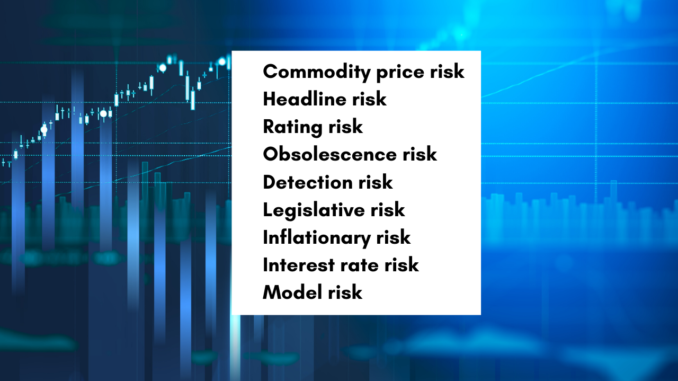



Investing in the stock market can be both exciting and rewarding, but it’s essential to recognize that every financial venture comes with inherent risks. As an investor, understanding these risks is crucial for making informed decisions and safeguarding your hard-earned money. Let’s delve into the details of common types of risks associated with stock market investments and explore how you can navigate them.
1. Business Risk
Business risk refers to the level of uncertainty and potential financial loss associated with investing in a specific company’s stock or equity. Factors contributing to business risk include:
- Leadership Changes: If a company experiences frequent changes in leadership, it can impact its performance and stability.
- Quality Management: Poor management decisions can lead to underperforming earnings reports.
- Competitive Positioning: Companies facing intense competition may struggle to maintain profitability.
- Industry Conditions: Economic shifts or industry-specific challenges affect companies differently.
- Financial Stability: Companies with weak financial health pose higher risks to investors.
To mitigate business risk, diversify your portfolio by investing in multiple companies across different sectors.
2. Downside Risk
Downside risk estimates the potential decline in the value of investments due to market-related factors and fluctuations. Key contributors to downside risk include:
- Supply and Demand Changes: Market dynamics impact stock prices.
- Economic Conditions: Recessions or economic downturns affect company sales and profitability.
- Investor Sentiments: Market psychology influences stock movements.
- Company-Specific Events: Earnings disappointments, scandals, or legal issues can lead to declines.
- High-Risk Sectors: Concentrating heavily in volatile sectors increases downside risk.
Diversification across asset classes helps manage downside risk effectively.
3. Economic Risk
Economic risk arises from macroeconomic factors and events affecting the broader economy, financial markets, and investments. Examples include:
- Recession: Economic downturns impact company performance and stock prices.
- Interest Rates: Changes in rates affect borrowing costs and investment returns.
- Currency Fluctuations: Exchange rate movements impact international investments.
- Geopolitical Events: Political instability or conflicts disrupt economic stability.
Stay informed about economic indicators and adjust your investment strategy accordingly.
4. Inflationary Risk
Inflationary risk erodes the real value of investment returns over time. It occurs when inflation outpaces investment returns, reducing purchasing power. Mitigate this risk by:
- Allocating to assets that historically outpace inflation (e.g., equities, real estate).
- Avoiding excessive reliance on fixed-income investments vulnerable to inflation.
5. Political Risk
Political risk stems from political events, instability, or policy changes in specific countries or regions. Factors include:
- Government Leadership Changes: Shifts in political ideologies impact investments.
- Regulatory Modifications: New policies affect business operations.
- Trade Disputes and Geopolitical Conflicts: These create uncertainty.
Diversify globally to minimize the impact of political changes.
6. Psychological Factors
Investor behavior plays a significant role in stock market risk. Fear, greed, and herd mentality can lead to irrational decisions. To manage psychological risk:
- Stay disciplined and avoid emotional reactions.
- Focus on long-term goals rather than short-term market fluctuations.
Remember that risk and return go hand in hand. While higher risk may offer greater rewards, striking a balance based on your risk tolerance and financial goals is essential. Consult a financial advisor to tailor your investment plan to your individual circumstances.
For more detailed information, explore resources from SmartAsset, The Stock Watcher, Investopedia, and The Balance11233445.
Leave a Reply